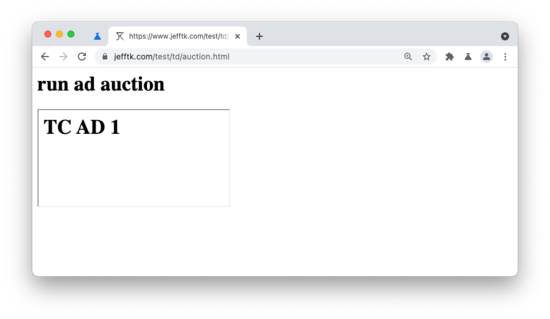Testing the FLEDGE Prototype |
May 12th, 2021 |
| ads, privacy, tech |
Chrome has proposed TURTLEDOVE to support remarketing ads without sending your browsing history to advertisers. (discussed in why I work on ads). Since the overall proposal is very complicated and requires large changes, they have also proposed an initial version, FLEDGE, that they expect to build and ship this year. They're building it incrementally, and they've now checked in very initial prototype support.
Lots of things are still missing, but if you download Chrome
Canary and start it with
--enable-features=AdInterestGroupAPI,InterestGroupStorage,Fledge,FencedFrames
you can play with what they have. For example, on my Mac this looks like:
"/Applications/Google Chrome Canary.app/Contents/MacOS/Google Chrome Canary" --enable-features=AdInterestGroupAPI,InterestGroupStorage,Fledge,FencedFrames
I made a demo:
- Visit auction.html. You should see "no turtledove winner" because you are not yet in any turtledove interest groups.
- Visit join.html. You should see "joined interest group", because it is adding you to an interest group.
- Visit auction.html again. This time, you should see an iframe containing "TC AD 1". This is an ad selected by a turtledove auction.
Things I ran into in setting up the demo:
Even though the spec uses
snake_casethe implementation usescamelCase(#156)DevTools support is still minimal
You have to send
X-Allow-FLEDGE: trueresponse headers on anything the FLEDGE API is fetching.
Keep in mind that this is a minimal initial implementation, and there are large parts of the spec they haven't gotten to yet. If something that is implemented doesn't work yet, though, it's probably worth filing a bug.
Comment via: facebook, lesswrong, substack
